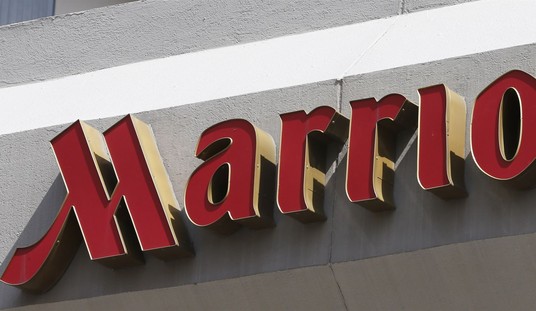Current wisdom says that if people in foreign lands love to hate America, the main cause is President Bush. If only we hadn’t gone into Iraq, if only we hadn’t stirred up the Middle East, if only, if only…
Oh really? With the fifth anniversary of Sept. 11 just ahead, I pulled out my notebooks from that day —
the day that apart from such stuff as Saddam Hussein announcing his delight, Palestinians dancing and handing out candy in Gaza and the West Bank, and people whooping it up in parts of China — much of the world rallied around America.
On Sept.11, 2001, I was in a small town several hundred miles from New York City. So that afternoon I did my reporting by way of man-on-the-street interviews — looking for the response not of big name policy makers, but of the folks at the local supermarket, stationery shop, and so forth. One of the places I visited was a tavern, where two bikers with Harley-Davidson tattoos shared their views while knocking back their beers and watching the TV footage of the horrors in New York. What jumps out is a remark by one of these young toughs, who told me:
“The one good thing that can come out of this … when they find out who did this thing, there’s going to be a lot of countries behind us. It’s not going to be that everyone hates us anymore.”
Wait a second. So — from somewhere this young tough had gathered the impression that plenty of people already loved to hate America. Now they wouldn’t hate us “anymore.”
That set off memories of my own travels in Europe, in the summer of 1972. I was 17, on a train from Holland to Hungary. The Vietnam war was still being fought (in which the real pity was not that we fought, but that we did not win). Europeans even back then were so busy criticizing America that to enjoy a little peace on the journey, I faked a Dutch accent.
Fast forward to 1986, vacationing in France, shortly after the TWA hijacking in which terrorists killed U.S. navy diver Robert Stethem and threw his body on the tarmac at the Beirut airport. The warning then was that Americans should be careful abroad of those who did not love us
Fast forward again, to the mid-1990s. I was working at the time as the Wall Street Journal’s bureau chief in Moscow. One of the story ideas we were batting around in the bureau had to do with rising anti-American sentiment as post-Soviet Russia failed to take off as rapidly as many Russians had hoped — beginning the slide back toward authoritarian rule.
All these moments were of course punctuated by one encounter after another with ordinary people in places ranging from Afghanistan to China to Russia to Cambodia to Kyrgyzstan — and more recently, Lebanon (to name a few), who would wrap up their comments on the local situation by asking how to get a visa to go live in America. In particular, I remember one man, a Russian, who sometime around 1996 was busy with a group of ultra-nationalists, protesting in front of the American embassy in Moscow, which just that week had been hit with a rocket-propelled grenade. He paused in his anti-American chanting to chat with me, noting that he had a brother living in America, and would like to go there himself one day. Then, in entrepreneurial spirit, he offered to sell me an embroidered wall-hanging of Lenin, before rejoining the mob and resuming his anti-American chant.
Over the past 30-plus years, there is one stretch that stands out as being a time when almost everyone had good things to say about America. It was 1989, when Chinese protesters built their own Statue of Liberty in Tiananmen Square; when Germans knocked down the Berlin Wall; when the people of an imploding Soviet Union found themselves for the first time in generations free enough to speak up. There was a lot of outspoken affection abroad that year for America. And that capped a decade in which — in a big switch from the apologist administration of President Carter — President Reagan had horrified the hate-America-first crowd right here at home by denouncing the Soviet Union as the Evil Empire, building up the U.S. military, and championing, unashamedly the United States and all it stands for. That took more than five years — during which the guiding aim was not to try to please all, but to chart a course that by lights of our own values was right.









Join the conversation as a VIP Member